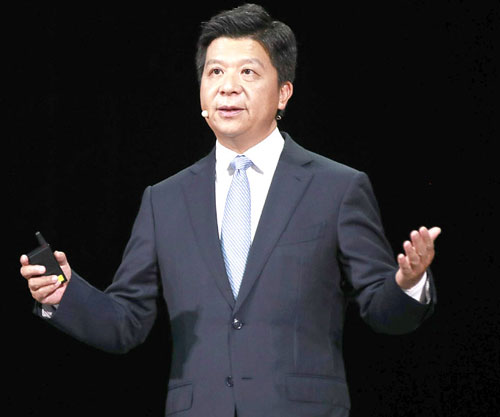Staff Reporter
Karachi
Huawei Connect 2020 opened today as the company’s annual flagship event for the global ICT industry. Hosted physically in Shanghai and virtually around the world, it is a platform where Huawei discloses its major strategies for the coming year.
In the 2016 edition, Huawei envisioned an intelligent world and called upon its partners worldwide to build a diverse and thriving Costa Rica-like ecosystem together. In 2017, Huawei announced its goal of becoming one of the world’s five major cloud service providers. In 2018, Huawei revealed its AI strategy, and then in 2019 its computing strategy.
In 2020, as 5G has been rolled out at scale worldwide, connectivity, cloud, AI, computing, and industry applications have all come together to create unprecedented opportunities for the ICT sector.
Therefore, the focus of this year’s Huawei connect is: Creating new value with synergy across five tech domains.
Moving forward, Huawei will focus on applying ICT technologies to industries and providing scenario-specific solutions along with its partners to help enterprises grow their businesses and help governments achieve their strategic goals of boosting domestic industry, benefiting their constituents, and improving overall governance.
At the event, Huawei Rotating Chairman Guo Ping delivered a keynote speech, titled “Creating New Value with Synergy Across Five Tech Domains”. Guo said, “As more and more governments and enterprises go digital and embrace intelligence, the ICT sector will see incredible potential for growth. We look forward to opening this new chapter together with our partners.”
Guo shared Huawei’s leading practices in helping build smart enterprises, campuses, and cities, by integrating ICT technology with industry know-how and providing scenario-specific solutions to create value for governments and enterprises in regard to their major business systems.
In the next phase, Huawei will work with its partners to apply ICT technologies to industries, helping enterprises grow their businesses and helping governments achieve their strategic goals of boosting domestic industry, benefiting their constituents, and improving overall governance.










